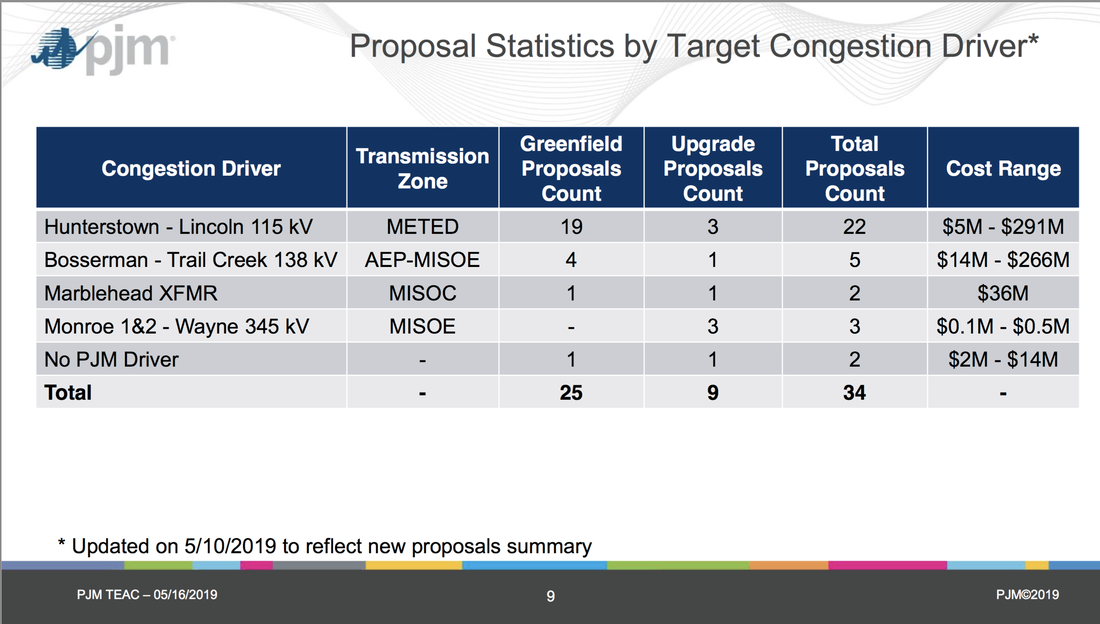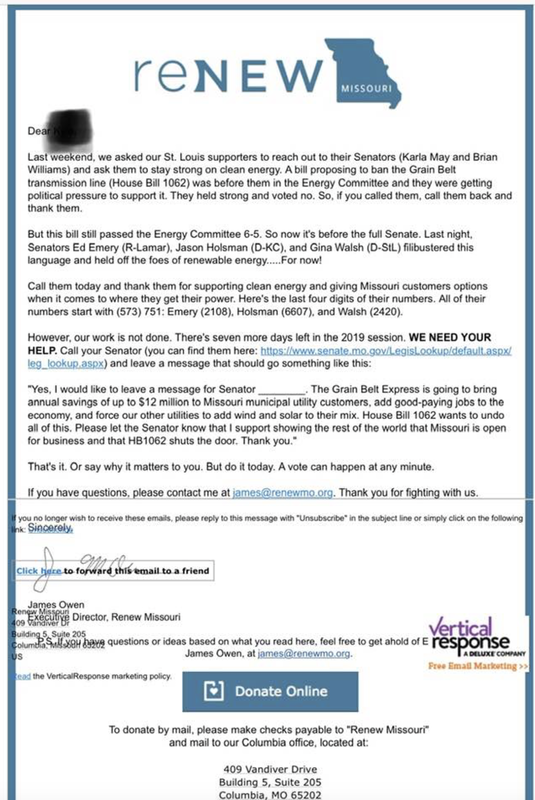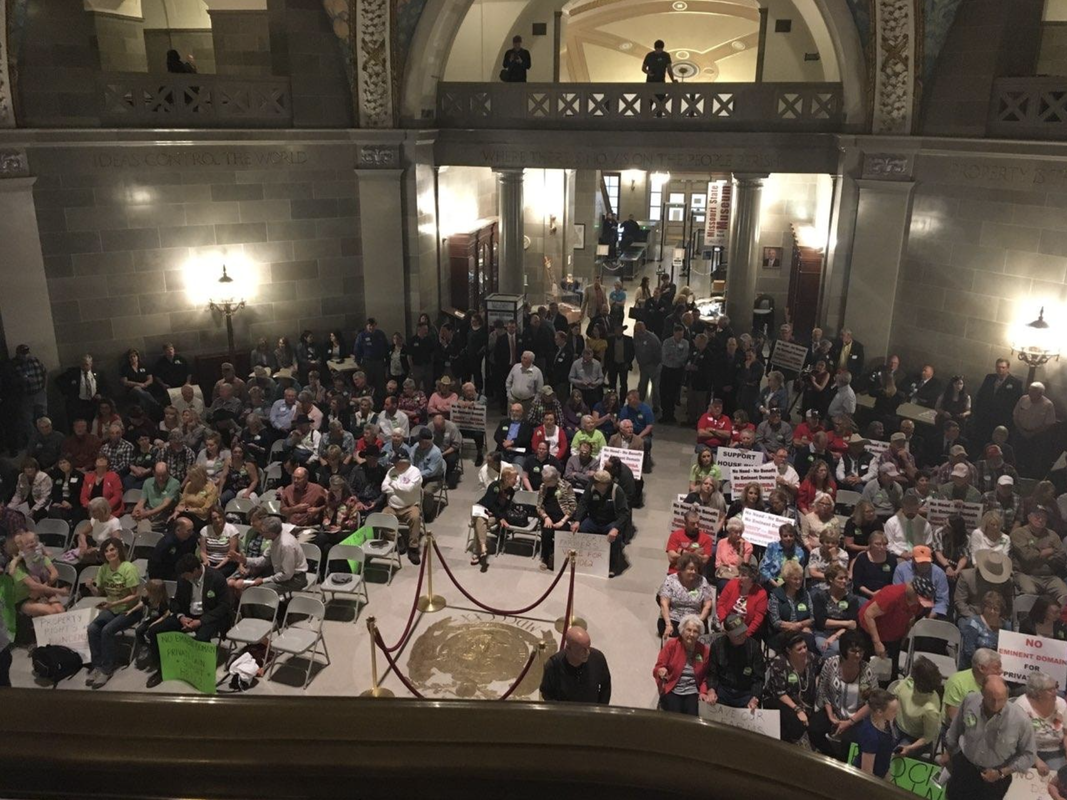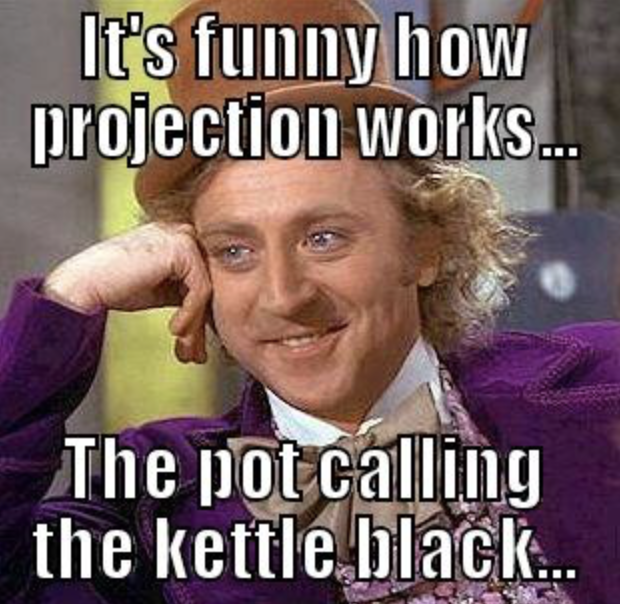The transmission line also creates several economic benefits, including added grid interconnection and future interconnection options, landowner easement payments, and county property tax payments.
No person shall be held to answer for a capital, or otherwise infamous crime, unless on a presentment or indictment of a Grand Jury, except in cases arising in the land or naval forces, or in the Militia, when in actual service in time of War or public danger; nor shall any person be subject for the same offence to be twice put in jeopardy of life or limb; nor shall be compelled in any criminal case to be a witness against himself, nor be deprived of life, liberty, or property, without due process of law; nor shall private property be taken for public use, without just compensation.
Isn't it galling how the takers attempt to speak for the victims this way? Everybody who stands to profit from eminent domain thinks they're the newest landowner spokespeople, telling everyone else how landowners benefit from easement payments, and depend on these one-time pittances to survive. That's nothing but pure arrogance.
Compensation for electric transmission easements is not just. The chimera of "just compensation" is, again, created by the takers, not the victims. In actuality, transmission line easement payments cause a loss to landowners that can never be justly compensated.
Having a new transmission line or substation constructed on or near property causes property devaluation that the owner may never recover. While transmission developers may produce mountains of studies denying property devaluation, the proof is in the pudding. There is a stigma attached to energy infrastructure that buyers shy away from when comparing similar properties. Energy industry assurances, studies, and biased expert opinions provide little comfort to families evaluating properties they may call home. It’s not a decision based on logic, but on emotion and fear of the unknown.
Rural and farm properties take the brunt of new infrastructure siting, as developers seek the path of least resistance by siting their projects on “undeveloped land.” Just because a parcel of land is wide open space does not mean it is “undeveloped.” Farmland is fully developed to its best and highest purpose, that of feeding our nation. Oftentimes it may be conserved farmland, where the landowner sells future development rights to conservation programs with the intent of preserving the open space for all time. While the landowner is prevented from developing the land for profit, a transmission developer may see no barrier to developing transmission infrastructure on conserved farmland for its own profit, defeating the conservation of the open space.
Farms are businesses, and farmland is a factory. Farmers make their living off the land and what it produces. Running a new transmission project through the farm factory’s production line interferes with production and wastes productive space for all time. The addition of a transmission line profoundly changes agricultural practices on that parcel, interfering with (or
preventing) irrigation, pesticide application, aerial seeding, drainage systems, crop heights, and harvesting practices. Soil compaction and removal or mixing of topsoil caused by construction and maintenance of the transmission line can cause decreased yields for years into the future. The presence of a transmission line on a parcel also limits future use of that parcel for other purposes. Much of a farmer’s wealth lies in his land, and many farmers rely on the future value of their land for retirement income, much like others rely on a company-sponsored 401(k) plan. Preventing future land uses by adding transmission lines to a parcel can create a huge,
unexpected loss to a farmer’s retirement income.
Family farming is generational, with many farms being handed down from generation to generation, which creates a rich history and connection to the land and explains why family farms may not be for sale at any price. The forced addition of transmission lines using eminent domain intrudes into the family history and sense of place, profoundly changing it forevermore. None of these very personal impacts to productivity and emotional well-being are adequately compensated by one-time payments for the current land value of a narrow, linear easement through a property. The entire property and future productivity is affected, often without just compensation. This effect is compounded when the landowner receives absolutely no benefit from the transmission project that “flies over” his land.
Stop pretending eminent domain takings are a "benefit" just to fill your own pockets. We're not buying it.






 RSS Feed
RSS Feed